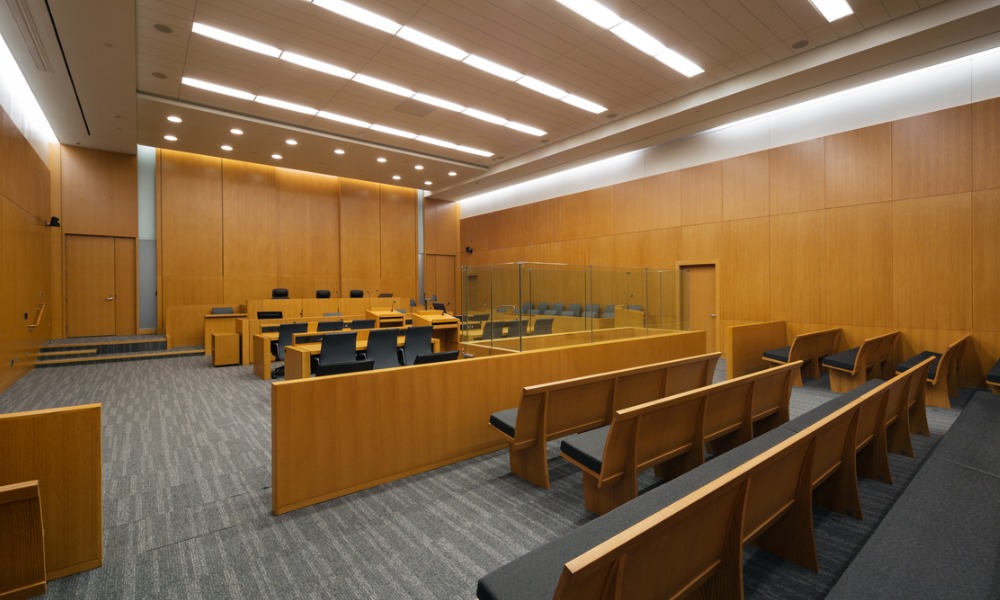
Cases scheduled at Federal Court this coming week involve patents, class actions, constitutional rights

This coming week, hearings scheduled at the Federal Court of Appeal included matters involving Canada’s Industrial Relations Board, Human Rights Commission, and Parole Board. Hearings set at the Federal Court concerned intellectual property, constitutional law, and class proceedings.
The appeal court set Giffen v. TM Mobility Inc., A-8-24 on Sept. 24, Tuesday. This matter involved the Canada Labour Code, 1985. This appeal sought to set aside a Federal Court judgment dismissing a judicial review application. The appeal alleged that the judge misapprehended the evidence relating to a supervisor’s decision to dismiss the appellant over another employee.
The appeal court scheduled Longo et al. c. AIMTA, District des Transports 140 et al, A-164-23 on Sept. 25, Wednesday. This judicial review application challenged a Canada Industrial Relations Board decision dismissing complaints against a trade union for alleged breach of the duty of fair representation under the Canada Labour Code.
The appeal court set Jagadeesh v. Canadian Imperial Bank of Commerce, A-288-23 on Sept. 25, Wednesday. This matter involved allegations of discrimination. The appellant challenged a Canadian Human Rights Commission decision and sought to set aside a Federal Court order dismissing a judicial review application.
The appeal court scheduled Gravel c. Le procureur général du Canada, A-256-23 on Sept. 26, Thursday. This appeal challenged a Federal Court order granting the respondent’s motion to strike and striking the appellant’s judicial review application, which challenged a decision of the Parole Board of Canada’s appeal division.
The court set Houle et al v. Swan River First Nation et al, T-903-19 on Sept. 23, Monday. Two consolidated judicial review applications requested an order setting aside an electoral officer’s decision and a declaration that the applicants were eligible to run as candidates in an election.
The applicants also wanted a declaration that s. 9.1(a)(2) of the Swan River First Nation Customary Election Regulations discriminated based on Aboriginal residency and thus breached s. 15 of the Canadian Charter of Rights and Freedoms.
The respondents filed a motion seeking for the court to treat the consolidated applications as an action and to proceed with it as an action. The respondents alleged that the applicants’ constitutional argument – as well as the defences applicable to this argument – called for such treatment.
In November 2020, in Houle v. Swan River First Nation, 2020 CanLII 88240, the Federal Court decided that the consolidated applications should proceed as an action. The court found it appropriate to treat the applications as an action, given the facts and circumstances of this case.
The court scheduled Dufour c. Sa Majesté le Roi, T-2005-06 on Sept. 24, Tuesday. This matter arose from mediation sessions between the court and the Royal Canadian Mounted Police relating to settlement plans. The applicant appealed the prothonotary’s dismissal of his motion and alleged an error of fact or law.
In April 2014, in Dufour v. Canada, 2014 FC 317, the Federal Court dismissed the appeal. The court found it impossible to confirm whether the prothonotary’s dismissal of the motion amounted to a clear error.
The court set Corriveau v. His Majesty the King, T-138-19 on Sept. 26, Thursday. The underlying class proceeding against the RCMP alleged systemic negligence through failure to provide a medical examination free of sexual assault, battery, and inappropriate and unnecessary procedures. The class action was certified on consent.
A post-certification motion requested certain particulars, among other reliefs. Last July 31, in Corriveau v. Canada, 2024 FC 1219, the Federal Court partly granted Canada’s motion and ordered the plaintiff to provide particulars relating to the alleged inappropriate and unnecessary procedures or improper and invasive procedures, as well as other particulars.
The court scheduled Adeia Guides, Inc. et al. v. BCE Inc. et al., T-1184-21 on Sept. 27, Friday. In the underlying action, the plaintiffs alleged that the defendants infringed four of their patents. The defendants denied infringement and challenged the validity of these patents.
The plaintiffs moved for an order requiring the defendants to deliver further and better affidavits of documents and to produce all relevant documents in their possession, power, or control. Alternatively, they wanted to cross-examine the defendants on the creation of these affidavits.
In a separate motion, the plaintiffs moved to amend the second amended statement of claim to add certain contributors to the alleged infringement and to include more systems as components of the alleged infringing systems.
Last June 17, in Adeia Guides Inc. v. BCE Inc., 2024 FC 927, the Federal Court dismissed the motion. The plaintiffs failed to establish with persuasive evidence that any further relevant documents existed, the court said.
On June 18, in Adeia Guides, Inc. v. BCE Inc., 2024 FC 942, the Federal Court ordered the plaintiffs to file and serve a third amended statement of claim. The court specified which proposed changes it was accepting and which it was rejecting.